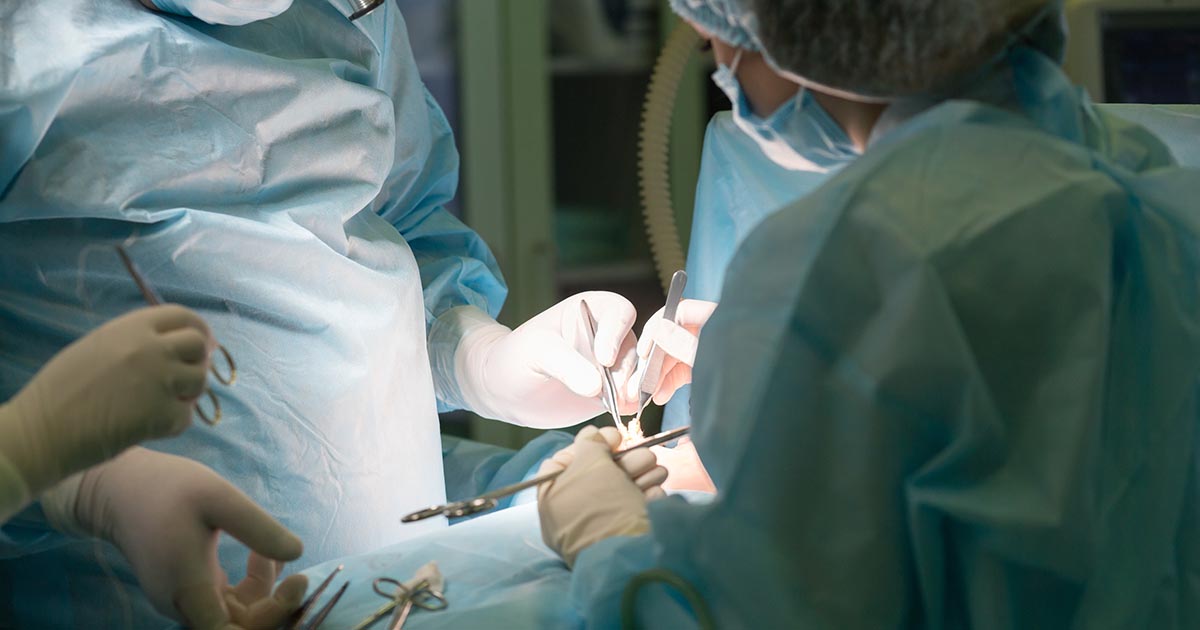Ways To Treat A Hernia
Hernias are bulges that occur when increased pressure in the body causes an organ to push through weak areas of muscle or tissue. Most hernias are located in the abdomen, and they can also occur in the groin area, thigh, or around the navel. The most common type of hernia, known as an inguinal hernia, accounts for seventy percent of all hernia cases. This occurs when the intestines break through the wall of the abdomen and into the inguinal canal. Risk factors of developing a hernia include smoking, obesity, poor diet, and improper performance of heavy lifting tasks. Hernias can also be caused by recent surgery, constipation, pregnancy, sneezing, and chronic coughing. All of these place increased strain on the abdomen. Hernias usually present as a lump that can often be felt when standing up or coughing. Depending on the hernia's location, some patients may experience heartburn, a heavy feeling in the abdomen, and chest pain. Doctors diagnose hernias by completing a physical examination of the affected area. Sometimes, ultrasounds or x-rays may be used to confirm the diagnosis. The methods described below can help prevent and treat hernias.
Avoid Eating Heavy Or Large Meals

Patients with active hernias and those who are seeking to prevent hernias need to take special care when planning and eating meals. Eating heavy or large meals can exacerbate the burning sensation and other symptoms of acid reflux that are common with hiatal hernias (when the stomach pushes upward into the chest) and can also increase the sensation of pressure and heaviness in lower abdominal hernias. Hernias can cause an increase in stomach acid and may cause food to leak into areas where it should not normally be. Patients should avoid eating heavy or large meals and aim to eat smaller but more frequent meals, as this will make digestion easier and prevent pain as well as other symptoms. For example, consuming two to three hundred calories at each meal and eating six meals each day can help control symptoms and manage hunger simultaneously. Patients should not skip meals. At mealtime, always eat sitting up to promote healthy digestion, and do not bend or lie down for at least an hour after eating. Patients are advised to stop eating at least three hours before going to bed to reduce acid reflux at night.
Keep reading for more advice on treating a hernia.
Medications

Many medications are available to control the symptoms hernias cause. Many hernia patients commonly struggle with acid reflux (heartburn). Over-the-counter antacids help provide relief for minor heartburn, though they can sometimes cause diarrhea and kidney issues and should not be used for more than one week without consulting a doctor. For more severe acid reflux, doctors may recommend H-2 receptor blockers that reduce the amount of stomach acid that the body manufactures. These medications include cimetidine and ranitidine. Similar drugs called proton pump inhibitors, such as lansoprazole and omeprazole, help block acid production and can also heal damage to the esophagus. Versions of H-2 receptor blockers and proton pump inhibitors are available over the counter, and doctors can recommend extra-strength versions as needed. Some patients may also need pain medication for their hernia symptoms. Ibuprofen and other anti-inflammatory medications can be useful for mild pain.
Get to know the next strategy for managing a hernia now.
Maintain A Healthy Weight

Being overweight or obese can weaken the abdominal wall and make the development of a hernia in this area more likely. Gaining weight causes any existing hernias to grow in size, and excess weight can increase the risk of complications if hernia repair operations are needed. Most doctors use body mass index (BMI), a ratio that considers weight in relation to height, to determine whether a patient is at a healthy weight. A body mass index lower than twenty-five is regarded as a healthy weight. An individual is considered overweight if they have a body mass index between twenty-five and thirty. A body mass index of thirty or more is considered obese, and thirty-five or more is considered morbidly obese.
To maintain a healthy weight, patients can adopt healthy lifestyle habits such as eating more fruits and vegetables, reducing salt and saturated fat, and limiting processed and fast food. Patients who need help with planning a healthy diet can receive nutrition counseling. Regular physical activity can assist with weight loss as well. Hernia patients should check with their doctors about which exercises are safe for them to do since some fitness routines may place too much strain on the abdomen. Medicines and surgical procedures may be worthwhile for patients who struggle to maintain a healthy weight with lifestyle modifications.
Reveal more treatment methods for hernias now.
Avoid Foods That Trigger Heartburn Or Acid Reflux

Acid reflux and heartburn can negatively affect the lives of many hernia patients. For these patients, special diets can help them avoid foods that trigger heartburn or acid reflux. Studies have found certain foods double or triple an individual's risk of experiencing these painful symptoms. Peppermint tea, alcohol, citrus fruit (both juices and whole fruit), red meat, chocolate, caffeine, carbonated drinks, coffee, and tomatoes are all common triggers of heartburn patients may wish to avoid. To reduce heartburn episodes, patients can adopt a diet that includes low-fat dairy, vegetables, whole grains, and oats. Patients may wish to keep a food and symptom diary, writing down what they eat and any symptoms they experience after meals to discover which foods are most triggering for them.
Learn more about treating hernias effectively now.
Surgery

Although lifestyle modifications and medications can help manage hernia symptoms, hernias don't resolve on their own and will eventually need to be repaired with an operation. Sometimes, an emergency operation is needed if a hernia is strangulated. Strangulation can occur at any time, and hernia patients should call their doctor or go to the emergency room if they notice their hernia is becoming dark or turning pink or purple. The procedure for emergency and routine hernia repair is the same. The operation is most often done with general anesthesia, and surgeons access the hernia and push it back into place, tie it off, or remove it entirely. Hernia operations can be done with an open method that requires a large incision or through laparoscopic methods that use smaller incisions. Surgeons will recommend the type of repair method most appropriate in each case. Recovery time varies depending on the type of hernia repaired and the surgical methods used.
